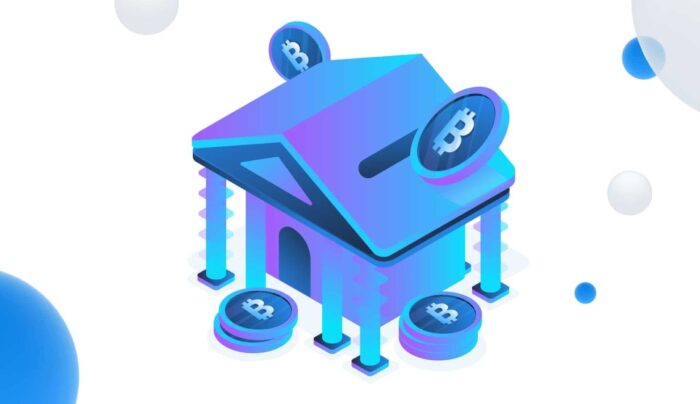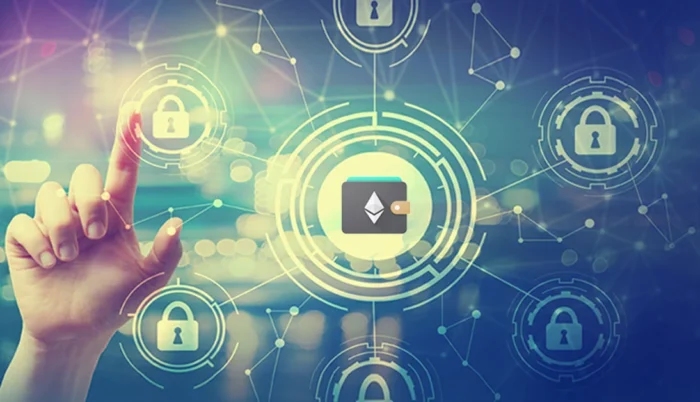
DeFi apps are built on Ethereum, the most popular blockchain for apps. Ethereum’s DeFi smart contract development allows developers to create financial services that are trustless, transparent, and interoperable.
The DeFi ecosystem has exploded in popularity in recent months, with the total value locked in DeFi protocols reaching over $1 billion in August 2020. The most popular DeFi protocols include MakerDAO, Compound, Synthetix, and Uniswap.
The growing popularity of DeFi has led to the development of numerous tools and services that make it easier for users to participate in the ecosystem. These include MetaMask, a popular Ethereum wallet that allows users to interact with dapps in their browser, and Dharma, a lending platform that enables users to take out loans using cryptocurrency as collateral.
The explosive growth of the DeFi ecosystem is indicative of the growing demand for defi development services. DeFi offers several advantages over traditional finance, including increased security, transparency, and interoperability. With the rise of DeFi, we are seeing the beginning of a new era of finance, decentralized, open, and accessible to all.
The problem with centralized finance

The problem with centralized finance is that it can be unreliable and susceptible to fraud that is not with the decentralized finance development companies. For example, in 2017, the Mt. Gox exchange was hacked, and 850,000 bitcoins were stolen. This resulted in a loss of over $4 billion for business users.
Another issue with centralized finance is that it can be slow and cumbersome. For example, when you want to send money from one country to another, it can take days or weeks for the transaction to be processed.
Finally, centralized finance is often controlled by a few people or institutions. This can lead to cronyism and corruption. For example, in 2016, it was revealed that the Panama Papers showed that many wealthy and powerful people were using offshore accounts to avoid paying taxes. This led to public outrage and called for reform.
The solution to these problems is decentralized finance, powered by defi development company. With decentralized finance, there is no central authority or intermediary. This means that transactions are faster, cheaper, and more secure. It also means more transparency and accountability, as all transactions are recorded on the blockchain.
Incomplete decentralization

Incomplete decentralization is a type of decentralization that falls somewhere in between these two extremes. It is a system in which there is some degree of centralization, but not to the extent that it hinders the autonomy of individual actors.
Incomplete decentralization can take many different forms, and there is no single template that all systems must follow. The degree of centralization will vary depending on the specific context and goals of the system. Similarly, how power is distributed will also vary.
One example of incomplete decentralization in DeFi is the use of multisig wallets. In a traditional cryptocurrency wallet, only one private key controls the entire account. This means that the funds in the wallet are at risk if that key is lost or stolen.
Multisig wallets solve this problem by requiring more than one private key to access the funds. This means that even if one key is lost or stolen, the rest can still be used to access the funds. This adds an extra layer of security and makes it much more difficult for hackers to steal funds.
The question of access

Decentralization is a process of distributing power away from a central authority. This can be done for various reasons, including increasing democracy, reducing corruption, or making decision-making more efficient. There are many ways to decentralize control, and no single method is universally best.
However, it’s important to note that decentralization is not the same as complete anarchy. There still needs to be some form of organization and coordination. Otherwise, the system will quickly break down. Similarly, decentralization does not necessarily mean that everyone is equal – there can still be hierarchies or other forms of inequality within a decentralized system.
One challenge that often comes up with decentralization is that it can be difficult to balance too much and too little centralization. Too much decentralization can lead to chaos, while too little can stifle innovation and creativity. Finding the right mix is often a matter of trial and error and will vary depending on the specific context.
Decentralized finance
Decentralized finance, or DeFi for short, is a burgeoning ecosystem of financial protocols and applications built on Ethereum. From lending and borrowing platforms to stablecoins and tokenized BTC, the DeFi space has something for everyone. By deploying immutable smart contracts on Ethereum, DeFi platforms can offer trustless, permissionless financial services to users worldwide.
So why do we need defi development? Simply put, DeFi is lockin-resistant and censorship-resistant finance. By deploying immutable smart contracts on Ethereum, defi developers can offer trustless, permissionless financial services to users worldwide. Anyone can access these financial protocols and applications without going through a significant party or middleman.
This is incredibly powerful because it allows for the creation of new financial instruments and products that are impossible with traditional, centralized finance. For example, synthetic assets (or “synths”) are digital assets that track the price of real-world assets. This means you can now trade on the price of gold, oil, or even the S&P 500 without owning any of those underlying assets.
DeFi is also leading the charge in bringing innovative new products to market. From flash loans to DeFi exchange development, the DeFi space is constantly pushing the envelope regarding what is possible with blockchain technology. Because no centralized authority controls the DeFi network, it’s often seen as more secure and resilient than traditional financial systems.
Lastly, DeFi is changing the way we think about money and ownership. With traditional finance, you entrust your money to centralized institutions like banks or governments. But with DeFi, you are regaining control of your finances and data. You are the custodian of your crypto funds, and you have complete control over how you want to use them.








